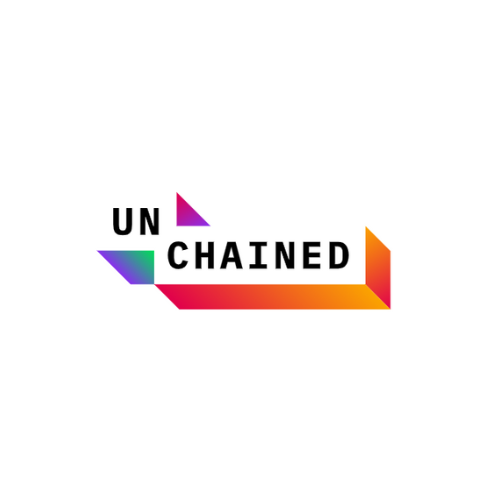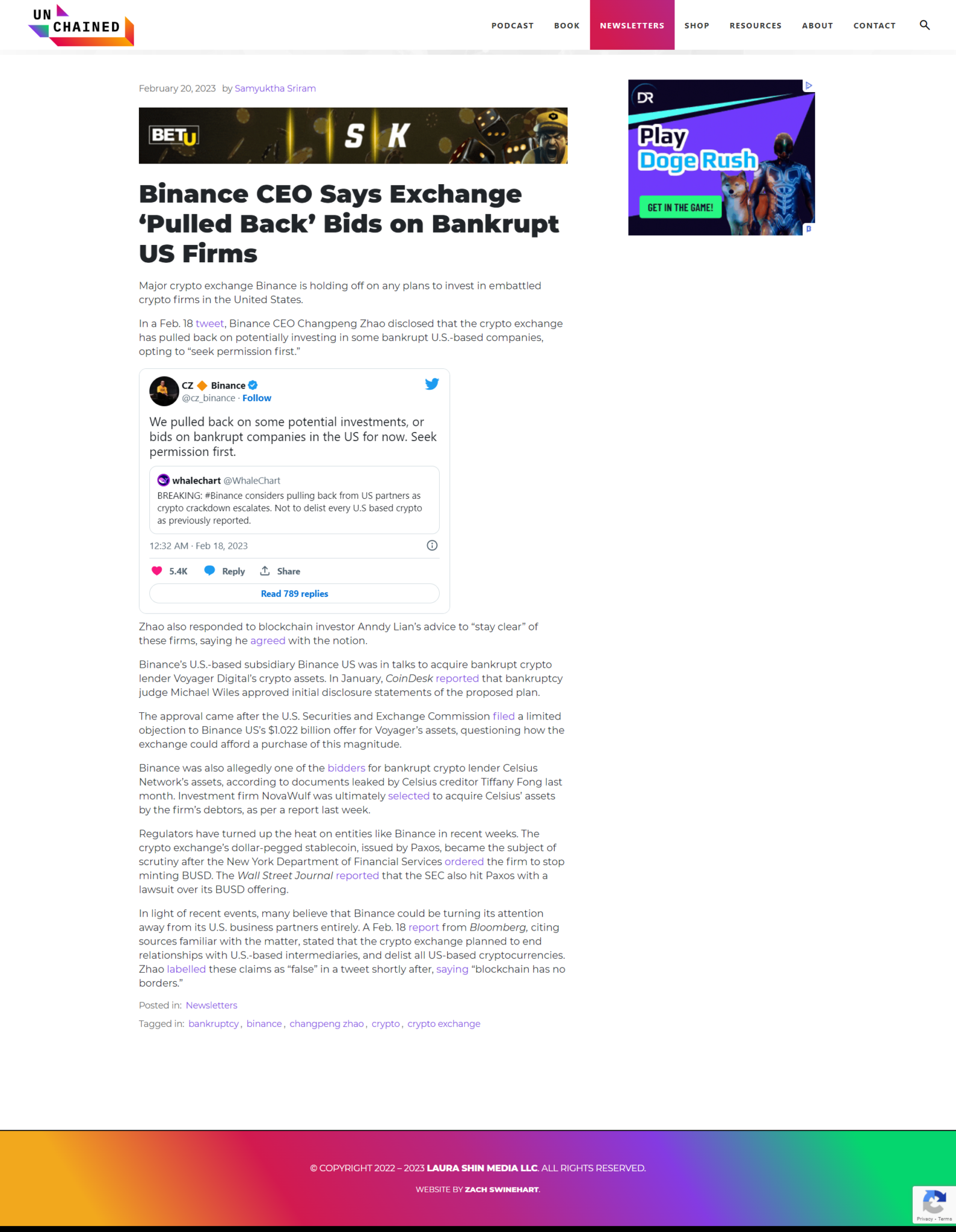The U.S. Department of the Treasury published the 2023 DeFi Illicit Finance Risk Assessment, the first illicit finance risk assessment report conducted on decentralized finance (DeFi) in the world. This report highlights the risks associated with the burgeoning decentralized cryptocurrency market, stating that it threatens national security and requires greater oversight and enforcement against money laundering. The report addresses explicitly decentralized finance (DeFi) services and their need to comply with anti-money laundering and terrorist financing laws, in addition to highlighting the threat posed by cybercriminals and ransomware attackers.
While there are still a couple of unclear things, the report pointed out that fiats currency is used in illicit finance more than cryptocurrencies. I agree with this statement.
What is decentralized cryptocurrency?
Decentralized cryptocurrency is a type of digital currency that operates independently of intermediaries such as banks and payment processors. Unlike traditional currencies, decentralized cryptocurrencies are not controlled by any central authority or government. It offers several advantages over traditional financial systems. For one, users of decentralized exchanges do not need to transfer their assets to a third party, reducing the risk of company or organization hacks, failures, fraud, or theft. The decentralized nature of cryptocurrencies allows for peer-to-peer transactions directly between individuals, facilitating faster and more efficient transactions.
Decentralized Finance, commonly known as DeFi, is a disruptive phenomenon that has shaken the traditional financial sector to its core. In essence, DeFi is a remarkable unraveling of conventional finance that has taken the fundamental aspects of banking, insurance, and exchange, such as lending, borrowing, and trading, and disentangled them from the traditional financial infrastructure. Instead, DeFi utilizes innovative technology protocols that operate in a decentralized manner, enabling many individuals to reach consensus efficiently and make informed decisions.
Illicit activities prefer fiat or crypto?
According to a Chainalysis report, illicit activities associated with cryptocurrencies include malware, terrorism financing, outright stealing of crypto funds, investment fraud, sanctions evasion, and ransomware are on a rise. Despite the increasing popularity of cryptocurrencies, recent research indicates that fiat currency is still the preferred choice for criminals engaging in money laundering. In fact, fiat currency is used for money laundering 800 times more often than cryptocurrencies, according to a report by the United Nations Office on Drugs and Crime.

Fiat currencies like the USD are still more commonly used in illicit financial activities compared to cryptocurrencies. The report noted that while there has been an increase in the use of cryptocurrencies in money laundering and other illicit activities, fiat currencies remain the primary means of payment for such activities. It also highlights that the anonymity and lack of regulation in the cryptocurrency space can make them an attractive option for criminals. However, the vast majority of illicit financial activities still involve traditional fiat currencies as the barrier to entry into cryptocurrency is still high and not widely accepted.
The U.S. dollar was the second most commonly counterfeited currency in the world in 2015, with one in 10,000 US dollars being forged. The $20 bill is the most commonly counterfeited banknote in the United States, while overseas counterfeiters are more likely to make fake $100 bills. The amount of counterfeit currency in circulation can affect everyone who receives the counterfeit money and is unable to pass it on. This problem can be reduced using Central Bank Digital Currency (CBDC). With money going digital, tracing where the money went becomes easier. This would be a story to share on another occasion.
Only 0.24% of all cryptocurrency transactions in 2022 were tied to illicit activity. This was up from 0.12% in 2021, according to Chainalysis. Despite the recent increase in the share of all cryptocurrency activity associated with illicit activity, it still only represents a small percentage of overall cryptocurrency activity compared to fiat currencies.
Why not use cryptocurrency since it’s anonymous?
Of course not. Fiat money is generally considered more stable than cryptocurrency, its issuance and governance are dictated by central banks, whereas blockchain protocols, code, and communities govern cryptocurrency. It is also true that cryptocurrencies are vulnerable to abuse due to their decentralization and borderless transactions. But it is worth noting that while crypto transactions are not entirely anonymous, they can be more difficult to trace than fiat transactions. This anonymity has led to concerns that cryptocurrencies may facilitate illicit finance activities, such as money laundering and terrorist financing.
Cryptocurrency transactions are recorded on a public ledger called the blockchain, which anyone can view. Due to cryptocurrencies’ trackable nature, I would say that the transactions made and recorded on chain are generally more transparent and traceable than cash transactions. This makes it difficult for criminals to use cryptocurrency for illicit activities without leaving a trail. On the other hand, cash transactions are often untraceable and can be easily used for money laundering and other illegal activities.
An anti-cryptocurrency lobbyist once pointed out to me that some privacy-focused cryptocurrencies, such as Zcash are designed to be untraceable. I corrected him in front of the public consultation group that the right phrase to use is “They are designed to be more difficult to trace.” This means that it would be more complex if you want to track it, but it is not impossible.
Privacy-focused cryptocurrencies prioritize privacy and anonymity, making tracing transactions back to their originators difficult. Take Monero as an example, is an open-source, decentralized cryptocurrency launched in 2014 and has become one of the most popular privacy-focused cryptocurrencies in the market. Monero’s combination of stealth addresses, ring signatures, and confidential transactions makes it almost impossible to trace transaction details. It has gained a reputation for its level of privacy and security. However, while they can offer higher levels of privacy and security than traditional money, the trade-off is that privacy-focused measures may make it more difficult to track activity and could lead to government regulation or taxation. Again, the words used here are “almost impossible” and “more difficult”. It is still possible to track.
Conclusion
The U.S. Treasury Department’s report has caused quite a stir among crypto traders, with some warning about the impact it could have on the market. While the report is the first illicit finance risk assessment conducted on DeFi, it is essential to note that there is currently no generally accepted definition of DeFi. This makes it difficult to pinpoint exactly what type of DeFi services are at risk of being used for illicit purposes. It is important to note that the report does not necessarily mean that the government will immediately impose stricter regulations on the DeFi market. Instead, it lays the foundation for future regulations and greater oversight.
One thing to keep in mind is that while the report focuses on the risks associated with decentralized cryptocurrency markets, it does not necessarily condemn cryptocurrency as a whole. In fact, Federal Reserve Chairman Jerome Powell has recently stated that crypto itself is not the problem but rather the lack of regulation.
So, what does this mean for the future of cryptocurrency? While it is impossible to predict exactly what will happen, we will likely see increased scrutiny and regulation of the DeFi market in the coming years. This could lead to greater stability and security in the crypto market as a whole, making it a more attractive investment option for traditional investors.


Anndy Lian is an early blockchain adopter and experienced serial entrepreneur who is known for his work in the government sector. He is a best selling book author- “NFT: From Zero to Hero” and “Blockchain Revolution 2030”.
Currently, he is appointed as the Chief Digital Advisor at Mongolia Productivity Organization, championing national digitization. Prior to his current appointments, he was the Chairman of BigONE Exchange, a global top 30 ranked crypto spot exchange and was also the Advisory Board Member for Hyundai DAC, the blockchain arm of South Korea’s largest car manufacturer Hyundai Motor Group. Lian played a pivotal role as the Blockchain Advisor for Asian Productivity Organisation (APO), an intergovernmental organization committed to improving productivity in the Asia-Pacific region.
An avid supporter of incubating start-ups, Anndy has also been a private investor for the past eight years. With a growth investment mindset, Anndy strategically demonstrates this in the companies he chooses to be involved with. He believes that what he is doing through blockchain technology currently will revolutionise and redefine traditional businesses. He also believes that the blockchain industry has to be “redecentralised”.



